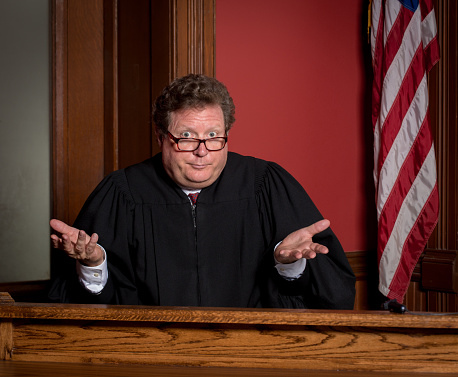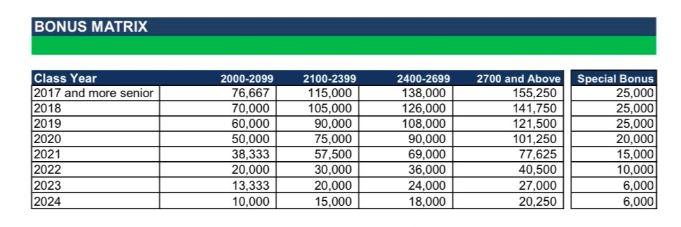Hanukkah
and
Christmas
are
nearly
upon
us,
and
everyone
in
the
legal
profession
is
ready
to
ring
in
the
New
Year,
so
it’s
finally
time
to
reveal
the
seven
finalists
for
our
sixteenth
annual
holiday
card
contest.
But
first
let’s
give
shout-outs
to
some
honorable
mentions
(click
on
each
firm’s
name
to
see
its
card):
1.
Armond
Wilson:
Behold,
another
holiday
blockbuster
card
from
the
nation’s
4th
best
law
firm
in
Patent
Office
litigation,
per
Patexia.
In
this
Home
Alone-inspired
hit,
our
nominator
behooves
you
to
“Keep
some
claims,
ya
filthy
animal!”
2.
Diaz
Trade
Law:
“No
one
has
more
fun
asking
CBP
to
forgive
a
client
for
not
paying
$40M
in
duties
over
10
years
than
Diaz
Trade
Law,”
says
our
nominator.
“And
with
47
federal
agencies
involved
in
regulating
imports
of
goods
into
the
United
States,
DTL
truly
means
it
when
they
say
then
untangle
regulations.”
3.
Shaw
Keller:
Happy
holidays,
from
your
lawyers’
pets!
This
card
features
paintings
of
all
manner
of
pets,
up
to
and
including
a
bird
and
a
horse.
“We
allowed
one
posthumous
pet
because
otherwise
one
of
our
associates
would
have
had
a
plastic
plant,”
says
our
nominator.
And
now,
the
seven
finalists,
in
alphabetical
order.
Again,
click
on
each
firm’s
name
to
view
its
card.
Please
note
that
most
of
these
cards
have
SOUND,
so
you
might
want
to
turn
your
sound
off
or
down,
or
use
headphones.
Explanatory
comments
come
from
firm
representatives
unless
indicated.
1.
Butler
Snow:
“This
year,
we
decided
to
take
another
compelling
look
at
lawyers
over-lawyering
seemingly
simple
things.
Admittedly,
it’s
a
bit
of
an
extension
of
our
award
winning
2023
holiday
card.
But
if
it’s
not
broke,
don’t
fix
it,
right?”
Yet
another
excellent
submission
from
lawyers
who
can’t
help
themselves
but
to
over-lawyer
everything.
Our
favorite
part
was
when
of
them
said
they
should
stitch
a
suggested
holiday
greeting
disclaimer
on
a
sweater
—
“This
holiday
greeting
is
for
informational
purposes
only.
It
does
not
constitute
an
offer,
promise,
or
guarantee
of
any
kind.
Peace,
love,
and
joy
are
subjective,
and
experiences
may
vary.”
—
and
they
actually
did!
(By
the
way,
where
can
we
get
that
sweater?)
2.
Cades
Schutte:
A
truly
wonderful
holiday
card
that
shares
the
“spirit
of
aloha,”
straight
from
the
Hawaiian
islands.
Our
nominator
says,
“We
feature
our
client,
Furukawa
Living
Treasure,
a
beloved
senior
community
in
Honolulu,
that
was
about
to
be
shut
down
due
to
permitting
issues.
Through
their
tenacity
and
strong
will,
they
survived
and
are
now
celebrating
their
25th
anniversary.
Our
attorneys
were
honored
to
join
Furukawa’s
anniversary
festivities
and
make
origami
aloha
shirt
crafts
with
the
kupuna
(seniors)
of
the
community.”
This
one
made
us
feel
happy
—
how
very
sweet!
3.
Davis
Wright
Tremaine:
The
firm’s
“in-house
creative
team,
Studio
DWT,
proudly
presents
a
delightful
3D
animated
holiday
video
set
in
a
whimsical
gingerbread
ski
lodge
and
resort.
This
festive
video
celebrates
the
sweet
moments
that
inspire
us,
connect
us,
and
make
our
shared
successes
possible.
Studio
DWT’s
expert
storytellers
and
film
producers
have
brought
their
unique
vision
to
life,
delivering
a
heartfelt
message
of
warmth
and
joy
for
the
season.”
This
one
is
a
real
work
of
creative
art.
Nice
job!
4.
Harness
IP:
“Our
video
holiday
card
stands
out
with
its
unique
blend
of
history,
creativity,
and
holiday
cheer.
By
showcasing
historic
patents
on
sleigh
bells,
we
bring
a
fun
twist
to
a
timeless
holiday
tradition,”
says
our
nominator.
“The
whimsical
elf
band
adds
an
extra
layer
of
charm,
turning
the
story
behind
these
classic
inventions
into
an
engaging
musical
celebration.
This
delightful
mix
of
educational
and
festive
elements
creates
a
captivating
narrative
that
connects
the
past
and
present,
making
it
both
entertaining
and
meaningful.
It’s
not
just
a
card—it’s
an
experience
that
captures
the
spirit
of
innovation
and
joy
that
defines
the
holiday
season!”
This
holiday
card
has
everything
you
could
possibly
want
—
and
you
can
even
download
an
app
to
turn
your
phone
into
a
set
of
sleigh
bells
each
time
you
move
it!
Absolutely
amazing!
5.
Larson
•
King:
This
firm
knows
that
Above
the
Law
editors
are
suckers
for
law
revue
videos,
and
this
is
simply
the
best.
The
11-time
holiday
card
contest
finalist
really
stole
the
show
with
this
submission.
From
our
nominator:
“Our
2024
greeting
highlights
Minnesotans’
love
of
music
by
featuring
assorted
parodies
of
throw-back
tunes
with
a
legal
twist.
Take
a
blast
into
the
past
by
listening
to
hits
such
as
We
Be
Billin’
(Run-D.M.C’s
You
Be
Illin’),
Don’t
Stop
Appealin’
(Journey’s
Don’t
Stop
Believin’),
Material
Witness
(Madonna’s
Material
Girl),
and
Brief
It
(Michael
Jackson’s
Beat
It).
Also
included
is
Minnesota’s
own
Prince,
featuring
I
Wanna
Be
Your
Lawyer
(a
parody
of
I
Wanna
Be
Your
Lover).
The
songs
were
custom-created
for
this
video
by
a
local
Minneapolis
musician
and
vocalist.”
We’d
definitely
pay
the
low,
low
price
of
$9.99
for
all
of
these
tunes!
We
LOVED
this
one!
6.
McBrayer:
A
hilarious
take
on
the
Ebenezer
Scrooge
story,
featuring
Bob
Cratchit
as
a
“former
abused
clerk/new
partner.”
This
lawyerly
view
of
the
Christmas
classic
had
us
cracking
up.
From
our
nominator:
“We
like
to
think
that
we
could
have
helped
famous
miser
Ebenezer
Scrooge
find
the
right
path
in
life
without
supernatural
intervention.
Here’s
our
take
on
how,
with
McBrayer
attorneys
playing
the
roles
of
famous
Dickens
characters
or
simply
themselves.
We’re
biased,
but
our
Scrooge
may
be
one
of
the
better
ones
committed
to
screen.”
7.
Morse:
From
our
nominator:
“This
year
we
decided
to
really
showcase
the
‘human
side’
of
our
team
by
presenting
their
many
creative
talents
in
a
printable,
shareable,
and
downloadable
e-book
full
of
crafty
DIY
projects
and
gift
options!
The
Morse
team
has
been
finding
creative
solutions
to
legal
issues
for
more
than
30
years,
but
did
you
know
we
can
also
make
a
mean
batch
of
holiday
dog
cookies,
whip
up
some
super
cute
snowman
bath
bombs,
or
decoupage
a
favorite
piece
of
furniture??
But
of
course,
when
it
comes
to
your
legal
needs,
don’t
do
it
yourself!
Call
us.
😉”
Wow!
This
e-book
looks
like
it
could
actually
be
very
helpful
for
those
who
need
to
entertain
elementary
school
students
who
are
home
during
winter
break.
Looking
forward
to
creating
homemade
cookie
mason
jars,
sugar
scrub
sand
art,
and
playdough
thanks
to
Morse!
Now
it’s
time
for
our
audience
to
vote.
We’ll
keep
the
polls
open
through
TUESDAY,
DECEMBER
31,
2021,
at
11:30
p.m.
(Eastern
time).
This
gives
you
ample
time
to
campaign
for
your
pick
over
the
holidays
(but
please,
don’t
cheat).
CLICK
HERE
TO
VOTE.
Thanks
to
all
the
entrants
and
nominators,
good
luck
to
the
finalists,
and
happy
holidays
to
all!
Above
the
Law
is
happy
to
celebrate
holiday
cheer
with
you!
 Staci
Staci
Zaretsky is
a
senior
editor
at
Above
the
Law,
where
she’s
worked
since
2011.
She’d
love
to
hear
from
you,
so
please
feel
free
to
email
her
with
any
tips,
questions,
comments,
or
critiques.
You
can
follow
her
on Bluesky, X/Twitter,
and Threads, or
connect
with
her
on LinkedIn.











 Kathryn
Kathryn





 Chris
Chris